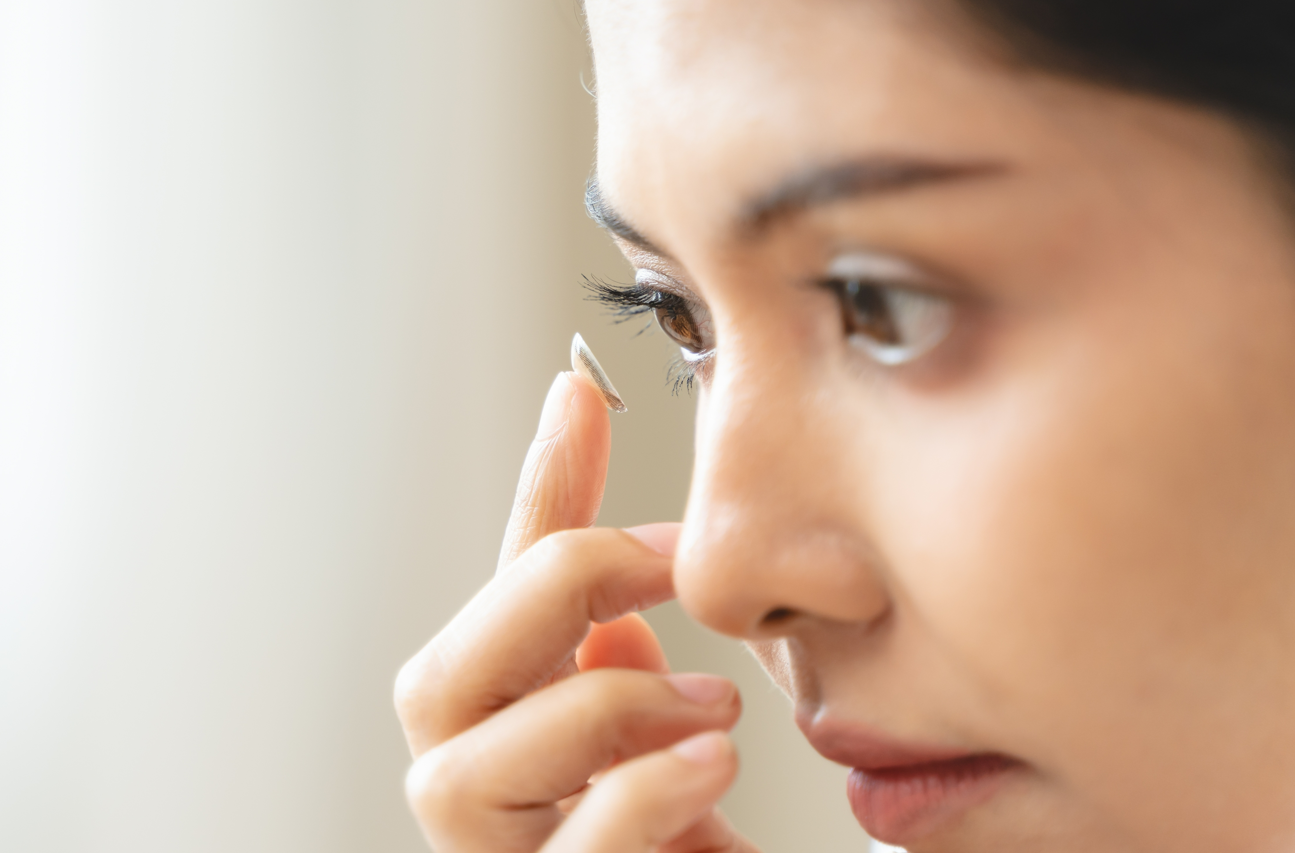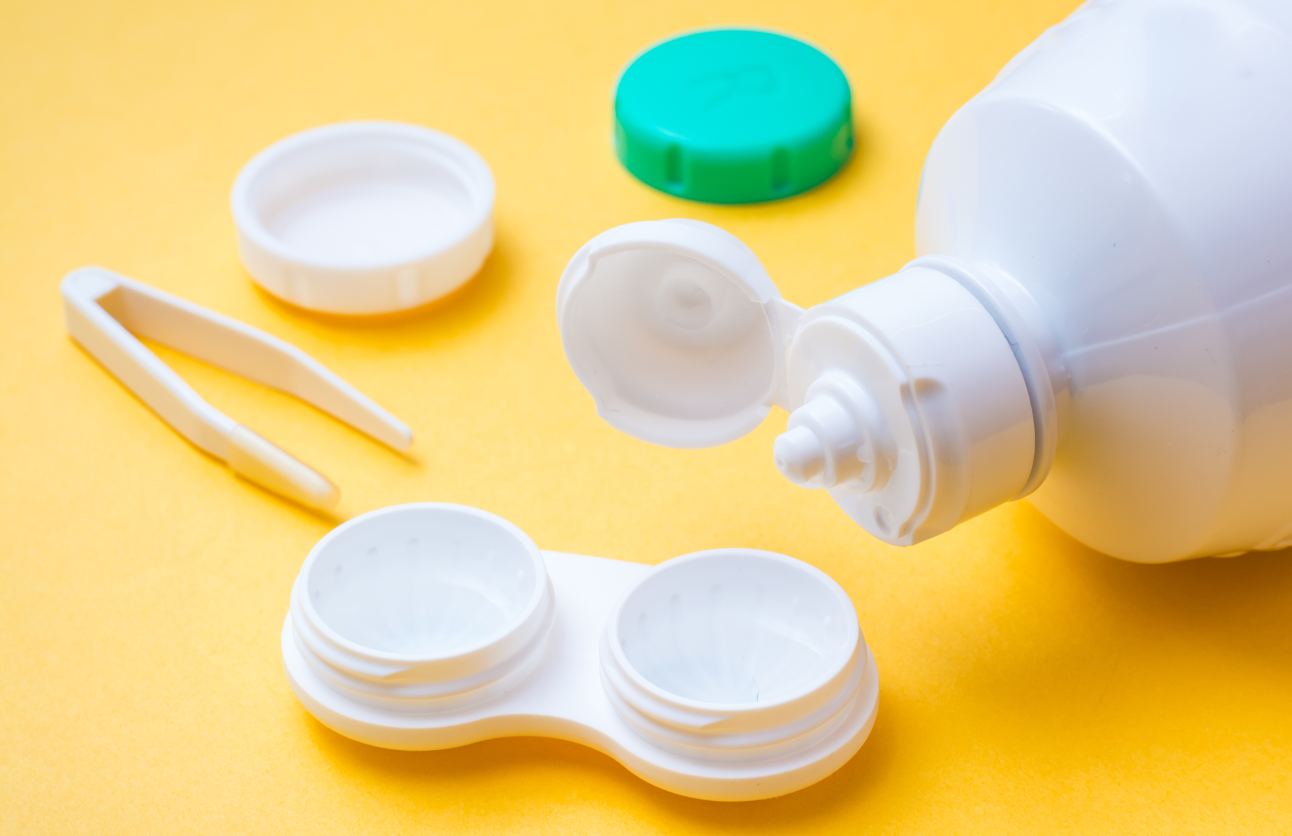Maricar Reyes experienced 'excruciating eye pain' due to contact lenses. Here's how you can avoid complications when wearing them
Did you know that you can overwear your contact lenses?
In a TikTok video shared over the weekend, Maricar Reyes shared that she almost suffered permanent eye damage due to overuse of her colored contacts. She'd be wearing them for 12 to 15 hours a day, especially during tapings, and even when they're expired.
But one day, she woke up feeling the "most excruciating eye pain" in her life, leading her to be taken back and forth to the emergency room.
@maricareyespoon Masyadong nakampante? #learningontiktok #advice #advicetok #contactlens #opthalmologist #eyecare #maricarreyespoon #maricarreyesbook ♬ original sound - Maricar Reyes-Poon
"Sa sobrang sakit, 'di ko na kinaya, binalik ako sa ER. They had to increase my pain medication, so for the next three days, halos hindi ko madilat 'yung mga mata ko sa sobrang sakit."
Reyes was diagnosed with corneal abrasions, which are big scrapes on the surface of the cornea.
"It turns meron pala akong corneal abrasions or malalaking gasgas sa magkabilang cornea or yung parte ng mata kung saan nakapatong ang contact lens."
"Sabi ng ophthalmologist ko, napakaswerte ko daw dahil sa laki ng mga sugat ko sa mata, pwede akong magkaroon ng mga peklat or mga puti-puti sa paningin ko habang buhay,” she added.
The actress ended the video by advising her viewers not to wear contact lenses for more than eight hours, avoid wearing expired ones, and consult eye specialists.
In an interview with PhilSTAR L!fe, opthalmologist Dr. Itos Yutangco explained that improper contact lens use for a long enough time can alter the physiology and morphology of the cornea, thereby compromising its integrity.
"This can lead to the disruption of the outer 'skin' of the cornea, or what we call corneal abrasion as [Maricar] had mentioned," he told L!fe.
Yutangco added, "Our corneas receive oxygen from the atmosphere when the eye is open and from the back of our eyelids when the eye is closed. Wearing contact lenses for a long enough timeframe impedes oxygen from reaching the cornea and can result in sight-threatening problems. This is why we strongly advise against wearing contact lenses all the time, especially while asleep."

This also rings true for Dr. Erwin Palisoc, a neuro-ophthalmologist at De Los Santos Medical Center, who said that excruciating eye pain can happen to frequent contact lens wearers.
Wearing contacts for more than eight hours may cause various side effects like eye discomfort, irritation, or eye redness, and in some cases, more serious complications like infections or corneal ulcers, which may lead to blindness if not properly cared for or used incorrectly.
"Extended wear or overnight wear of contact lenses can limit the amount of oxygen reaching the cornea, leading to a condition called corneal hypoxia. This can result in symptoms like discomfort, eye redness, and reduced vision," Palisoc told L!fe.
Similarly, Yutangco said it’s best to ask your healthcare provider or clinic about the different types of contact lenses that require varying wear duration recommendations.
How to take care of your eyes when wearing contacts
When wearing contact lenses, Palisoc implied that it is better to wear properly fitted, prescribed ones as they are not a "one size fits all" thing.
"Contact lenses sit directly on the cornea or the anterior surface of the eyes. Proper fitting of contact lenses is very crucial in maintaining adequate oxygen supply to the cornea," he said, adding that a poorly fitting lens can "impede tear exchange and oxygen flow," hence increasing the risk of complications such as corneal edema and new vessel formation.
Contacts can also be too tight or too loose, according to Yutangco. Thus, one must undergo proper contact lens fitting by a licensed optometrist to avoid "irritation, discomfort, and blurred vision," which are some of the symptoms of an improper contact lens fit.
Additionally, you should always wash your hands thoroughly with soap and water to prevent transferring dirt, bacteria, or other particles into the eyes.
Palisoc also said to remove contacts before activities like swimming, showering, or entering hot tubs as water may harbor bacteria or microorganisms that may lead to eye infections.
Besides removing contacts when sleeping, Yutangco says you should wearers should also refrain from using them when awake.
"Even when awake, don't wear them all the time. Consider alternating between eyeglasses & contact lenses," Yutangco said.
"Following wearing schedule and proper lens care must also be instituted," Palisoc chided.
How to store your contact lenses properly
Aside from proper wearing, the ophthalmologists also gave tips on how to store contact lenses correctly.
"Clean and disinfect the contact lenses regularly as directed by your eye doctor. Use only recommended solutions, and never reuse or top them off. Also, replace the contact lenses regularly," Palisoc noted.

Yutangco advised contact lens wearers never to use water, soap, or any other improper solution to clean their lenses.
He added, "Clean your contact lenses by gently rubbing them with clean fingers or hands, followed by rinsing them with the cleaning solution before soaking them."
For those who aren't sure whether or not their contacts are expired already, Yutangco says it's better to throw them out.
"When in doubt, don't use them anymore and just buy another one. The price of new contact lenses is significantly cheaper than the price of a contact lens-related complication," he said, adding that these should only be bought from professional healthcare providers and clinics.
Palisoc added that those experiencing discomfort, eye redness, irritation, or changes in their vision while wearing contacts should remove them immediately and consult with their doctor.


